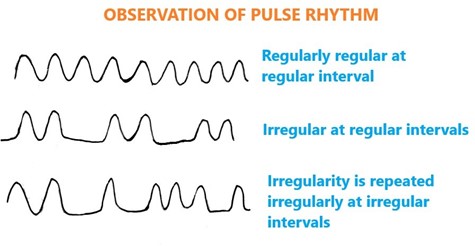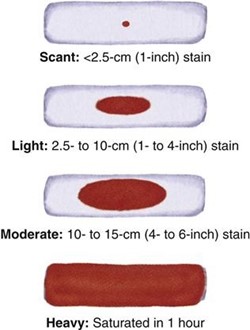A 3-week-old infant is admited to the pediatric unit with vomiting and dehydration. The mother describes the infant as having projectile vomiting after eating. She also tells the practical nurse (PN) that the baby is always hungry. Which finding warrants immediate intervention by the PN?
Hyperactive gastric sounds.
Irregular palpable pulse.
Crying without tears.
Underweight for age.
The Correct Answer is B
This finding may indicate a potential cardiac issue that needs immediate medical atention. Projectile vomiting and excessive hunger in a young infant may be signs of pyloric stenosis, a condition in which the muscle between the stomach and small intestine thickens, making it difficult for food to pass through.
Hyperactive gastric sounds may be present with vomiting, but it is not an immediate concern.
Crying without tears may be a sign of dehydration, but it is not an immediate concern.
Underweight for age is a concern but it is not a finding that requires immediate intervention.


Nursing Test Bank
Naxlex Comprehensive Predictor Exams
Related Questions
Correct Answer is B
Explanation
The PN should inform the client that athlete's foot is a fungal infection and that antibiotics are not effective against fungi. The client needs to use an antifungal medication to treat the infection. The other options are not accurate or appropriate responses.
Antibiotics take a week to be effective against the infection (A) is not accurate because antibiotics are not effective against fungal infections.
When the itching stops, continue to use the ointment for two weeks (C) is not appropriate because the client is using the wrong type of medication.
A thick layer of the medication is needed to stop the itching (D) is not accurate because the client is using the wrong type of medication.

Correct Answer is D
Explanation
The most important action for the PN to implement is to **assess the vital signs**. Saturation of a peripad within 15 minutes to 1 hour after delivery must be promptly reported. Data such as the amount of bleeding, the condition of the uterus, checking the maternal vital signs, and observing for signs of shock would play a vital role in the care of the patient with hemorrhage¹. Early recognition and treatment of PPH are critical to care management.

Whether you are a student looking to ace your exams or a practicing nurse seeking to enhance your expertise , our nursing education contents will empower you with the confidence and competence to make a difference in the lives of patients and become a respected leader in the healthcare field.
Visit Naxlex, invest in your future and unlock endless possibilities with our unparalleled nursing education contents today
Report Wrong Answer on the Current Question
Do you disagree with the answer? If yes, what is your expected answer? Explain.
Kindly be descriptive with the issue you are facing.
